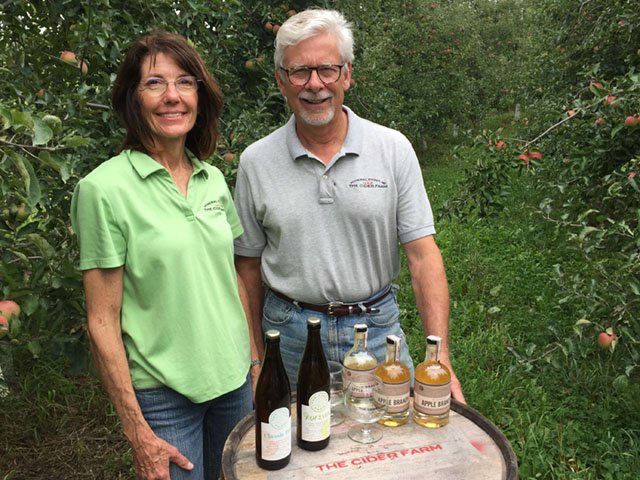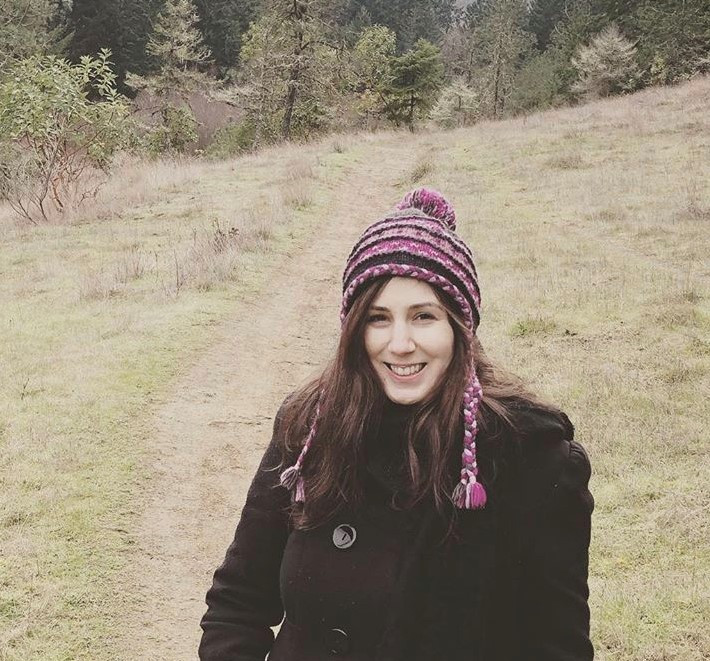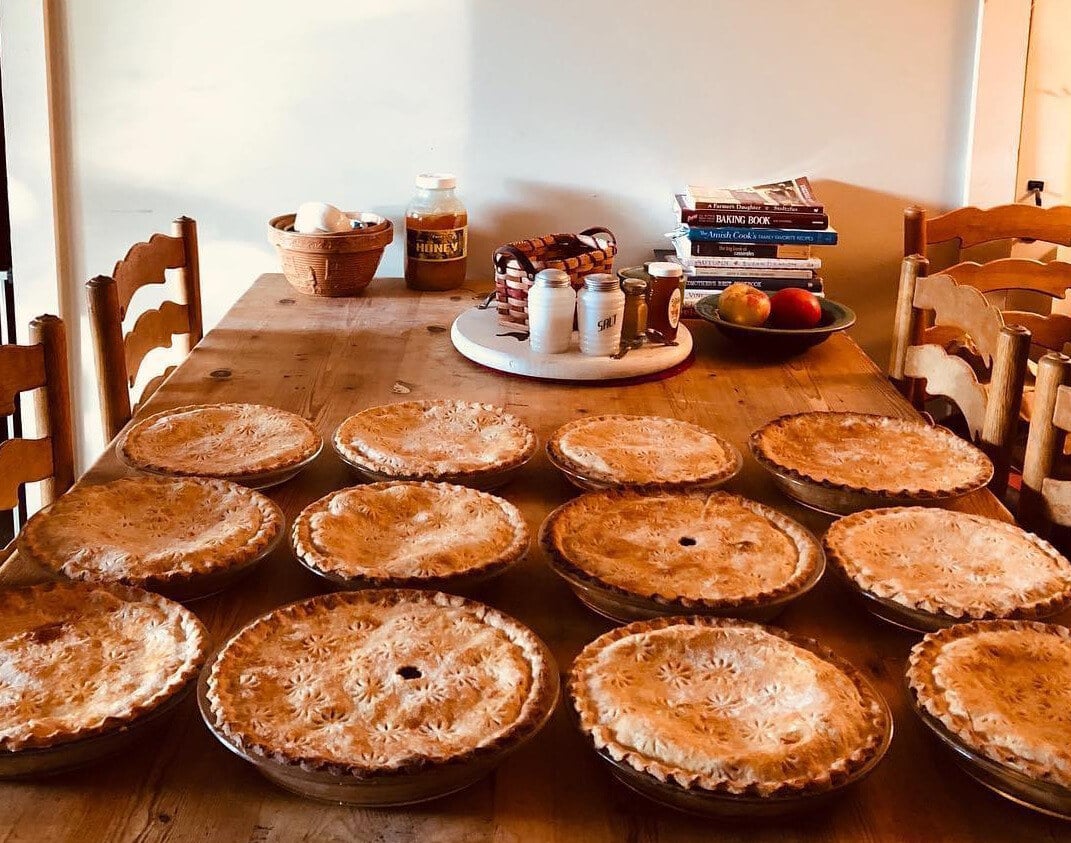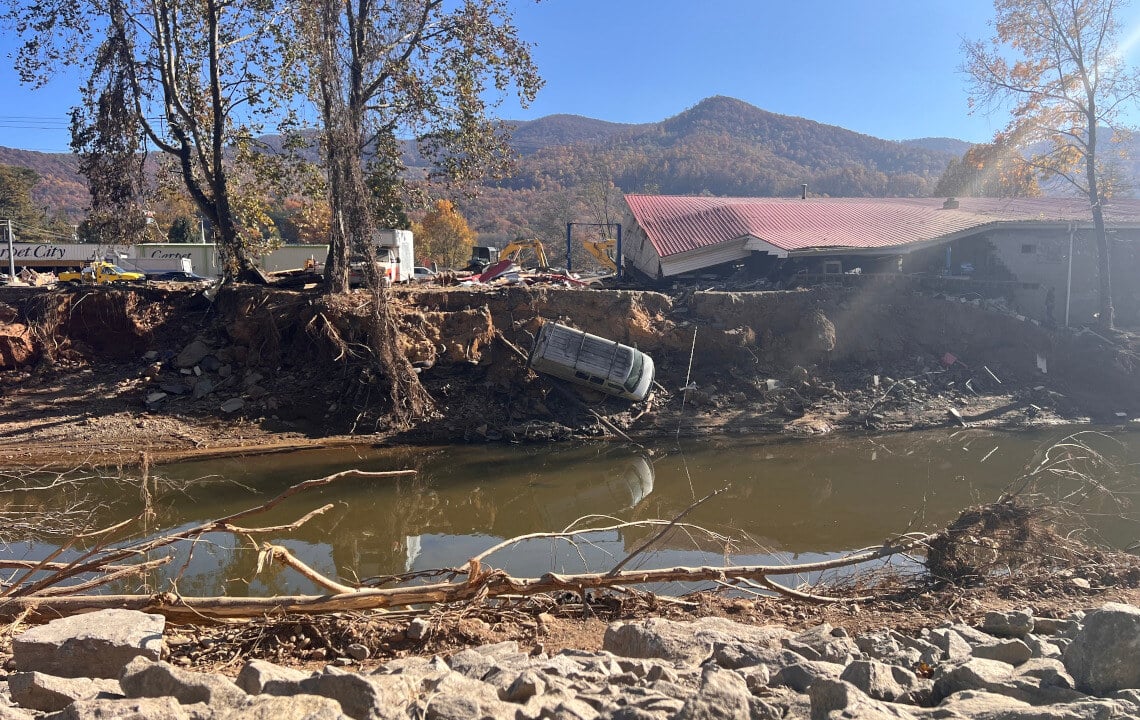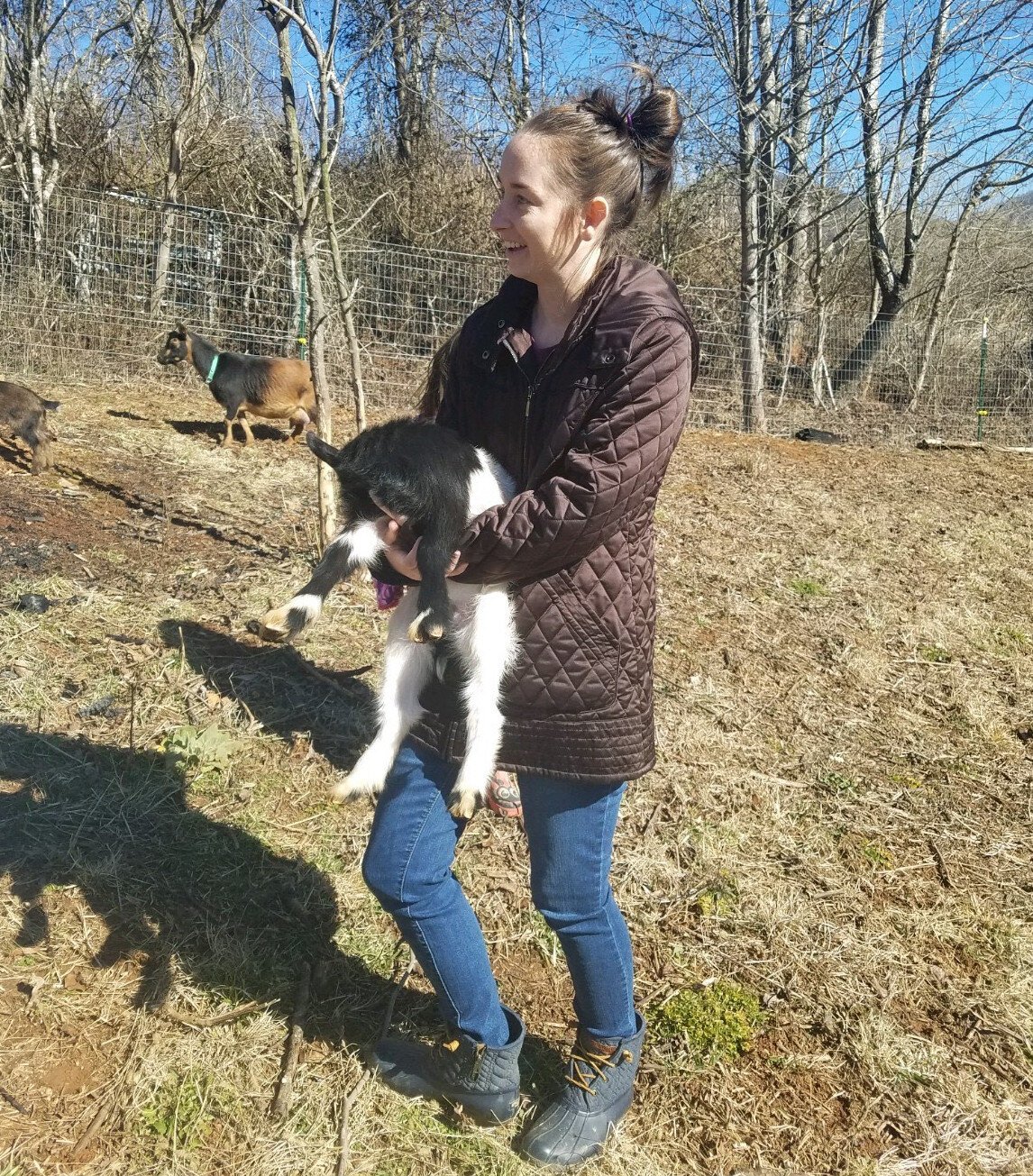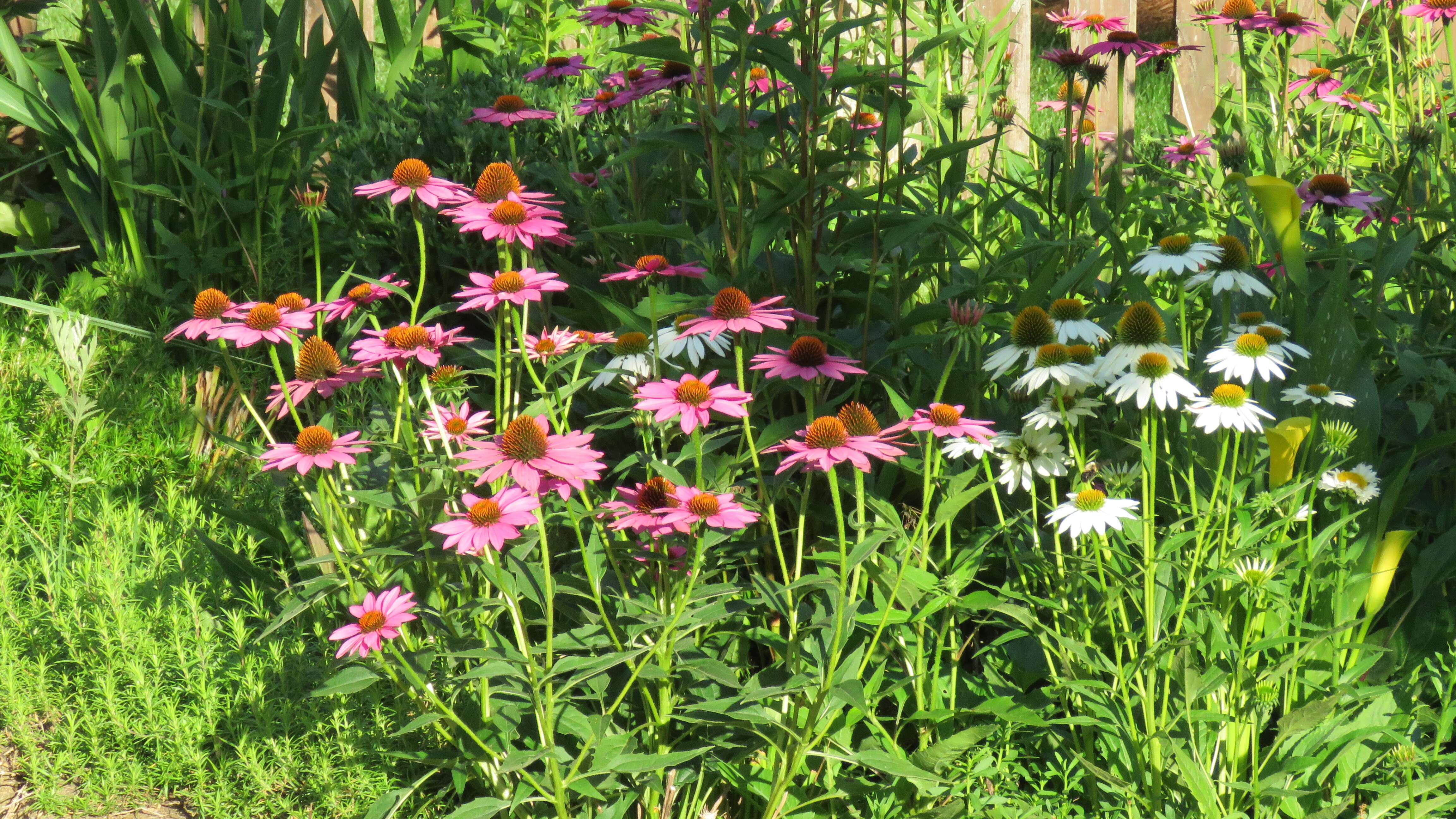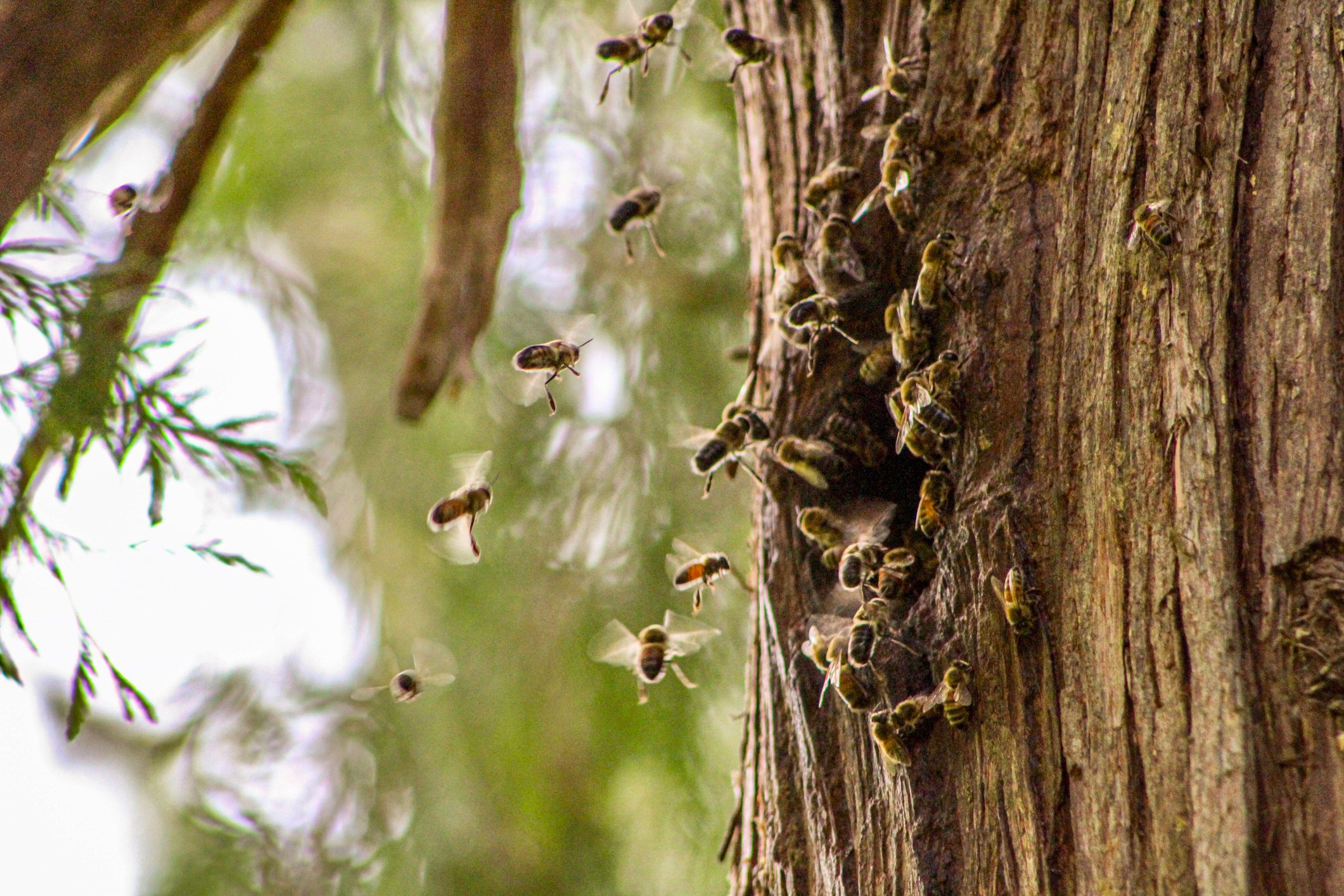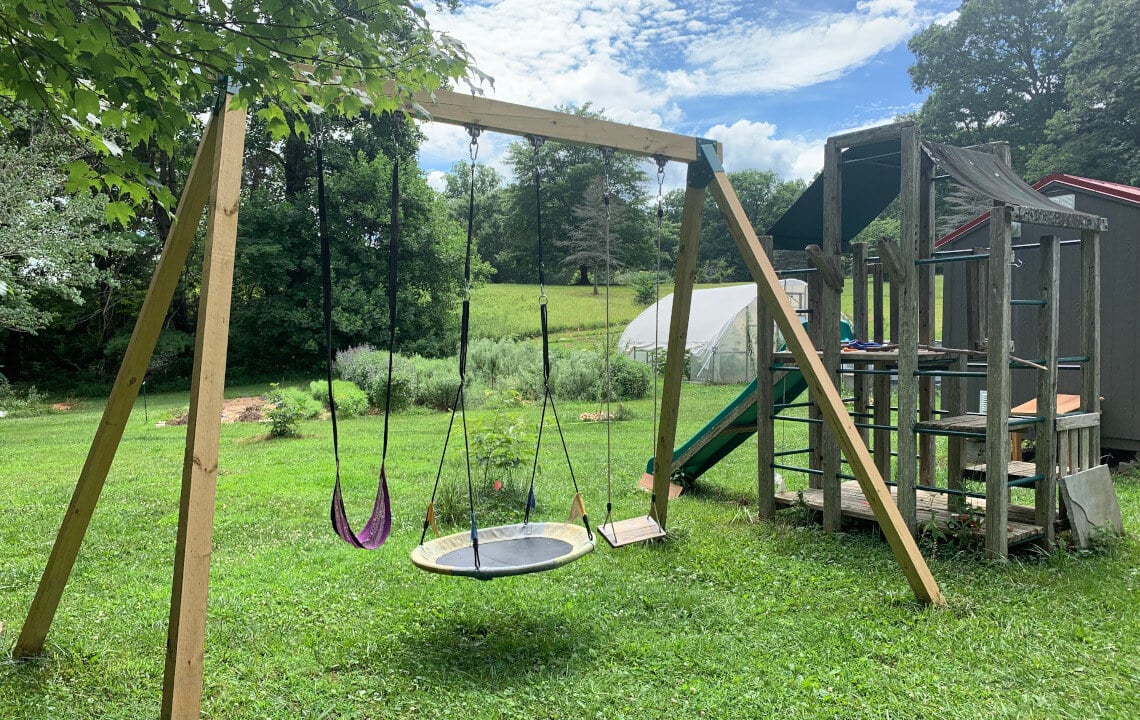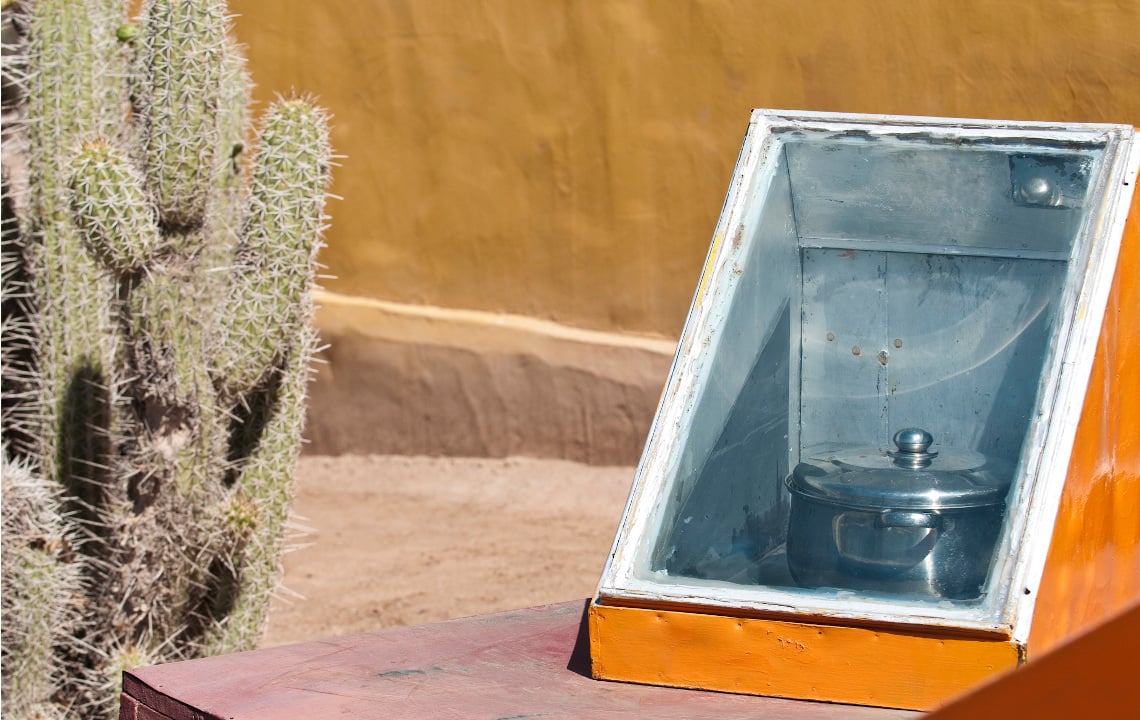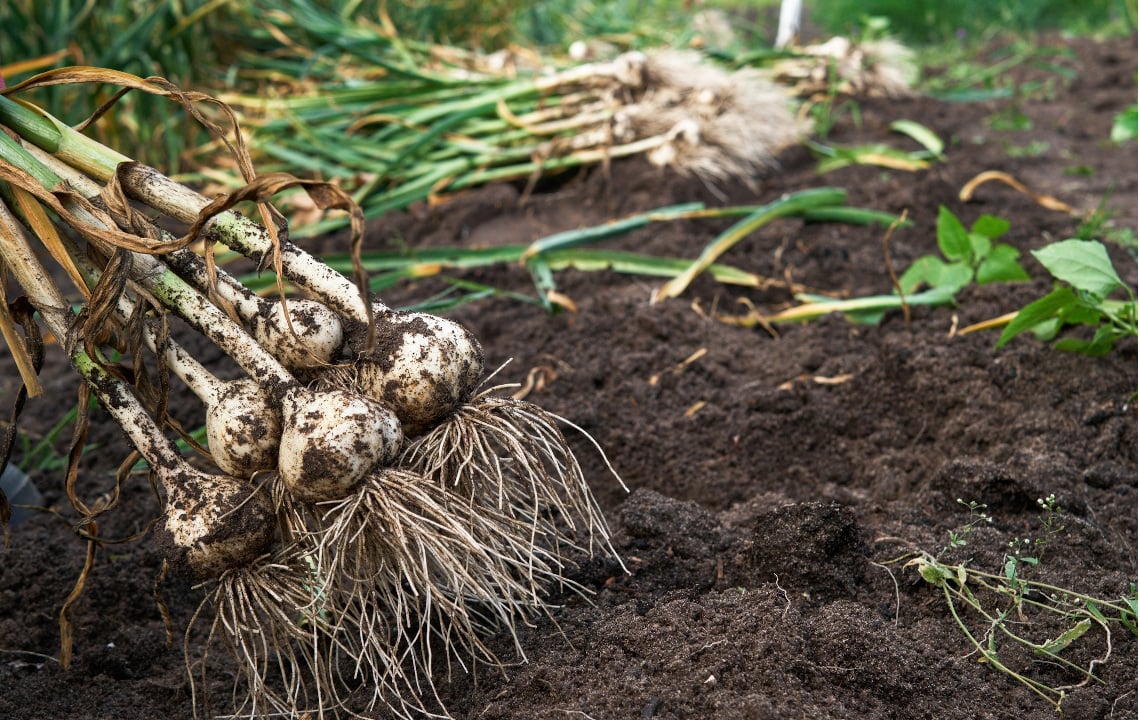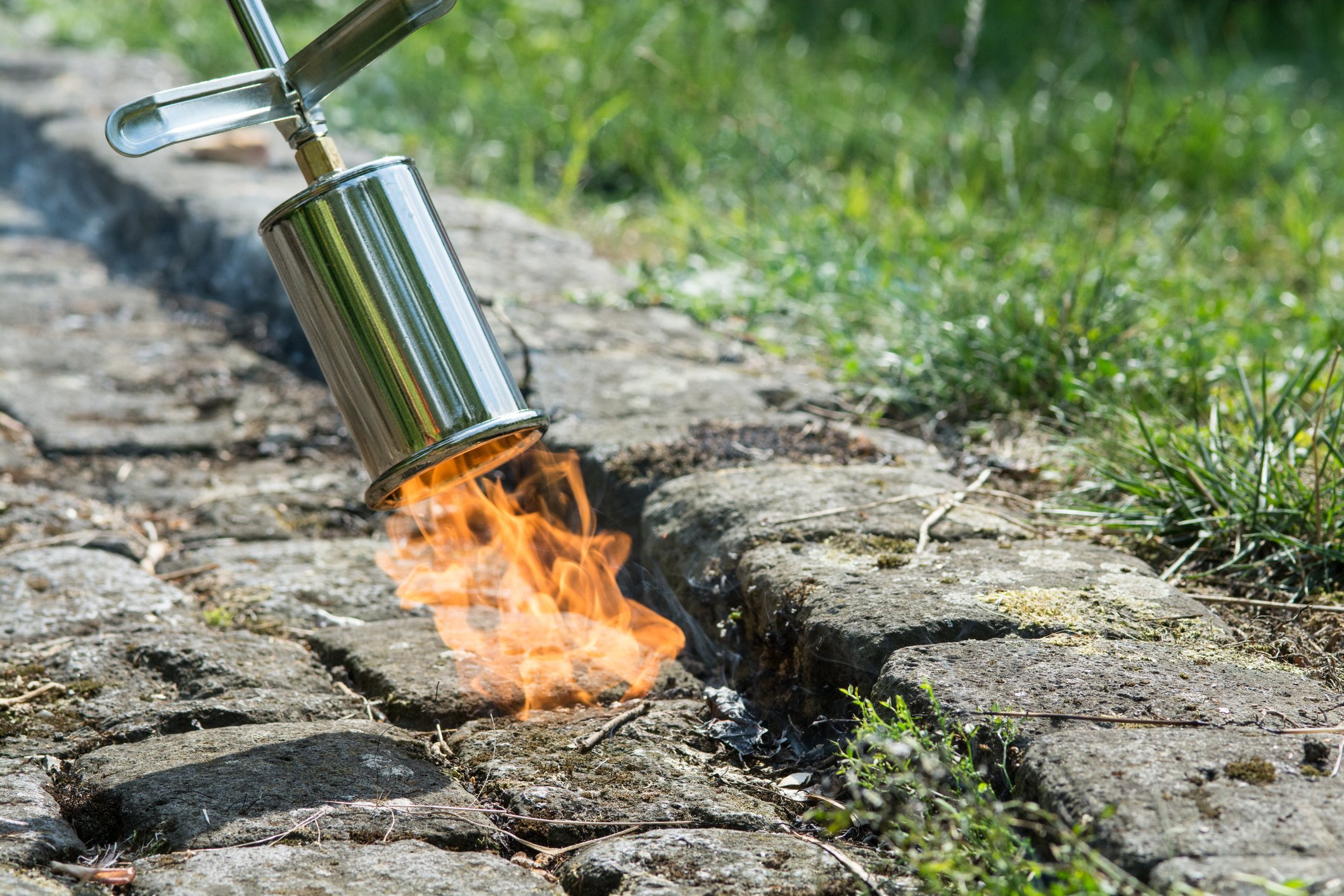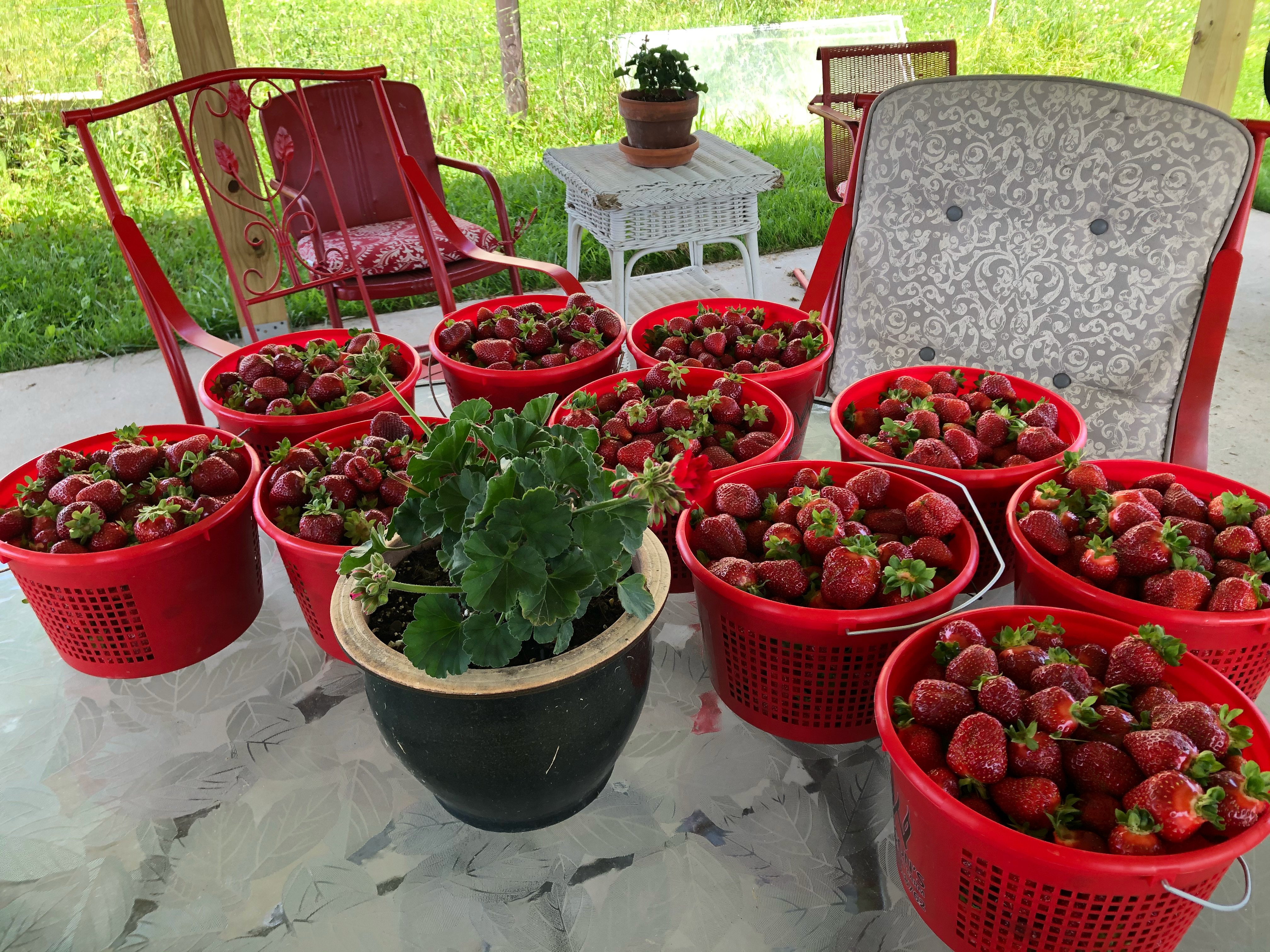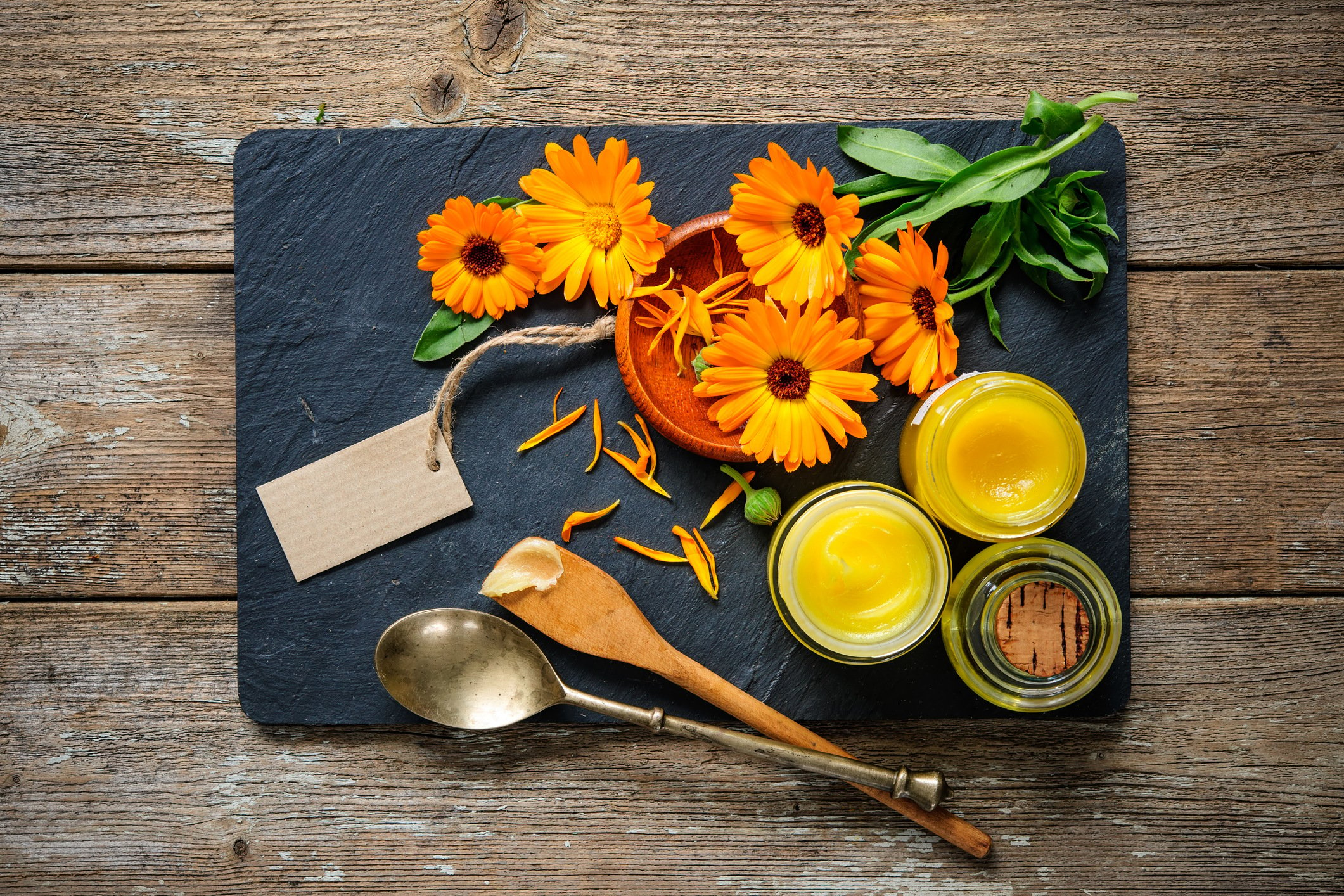The Birminghams set out to start an organic farm business...and wound up grafting, growing and brewing some of the best organic, traditional hard apple cider and brandy in the country. And the most inspiring thing? They had no experience growing apples before. Read on to learn more about their unconventional journey to success as a farm-based business.
When Deirdre Birmingham and her husband John bought their 166-acre farm back in 2002, they knew it would be the perfect place to start a farm business. Surrounded by rolling countryside in Wisconsin’s Driftless Region, the site was once a typical working farm with animals and crops back in the late 1800s. The Birminghams built their home in the same place where the former farmhouse used to sit.
“We just bought the land because it’s a naturally pretty landscape,” she said. “We knew we wanted to do a farm-based business together and that we wanted to grow organically but hadn’t determined what that was yet. But once we got the land it was like, okay, we better get busy.”
Cider Ambitions
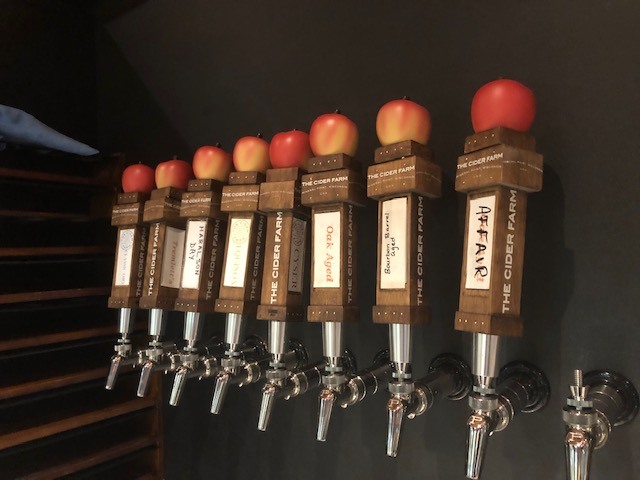
While Birmingham did not grow up on a farm she chose to study agriculture in college. Her husband has a background in marketing and business development, so they put their talents together and created one of Wisconsin’s premier cider businesses, The Cider Farm. The couple also have a tasting room in Madison where visitors can come enjoy their farm fresh hard cider and apple brandy. “I manage the farm and my husband is in charge of the cidery and tasting room. We make a great team,” she said.
Though, it was a long road to get there. The idea to start a hard cider business came to Birmingham after she had been reading up on ciders, which at the time, was not nearly as popular a drink as it is now. After sharing what she’d found with her husband, he agreed that cider making was something they should pursue.
“Apples are a very diverse fruit, they can grow in a lot of different climates. Also, our land already had hundreds of wild apple trees growing. So, apples certainly suggested themselves from their presence,” she said.
Birmingham was determined to create something superior to your typical run of the mill cider
Which meant, of course, that just any old apple wouldn’t do. “You make cider like how you make wine. And so we thought, well, you don't make great wine out of any old grape. We learned that the English and French in particular have developed tannic apple varieties for fermenting versus eating or baking. Like in wine grapes, tannins can give mouthfeel and complexity to the ciders. So we thought, great, there are plenty of sweet, tart apples around, and you want those in your blend. But what about the tannic ones? So, we began looking into it.”
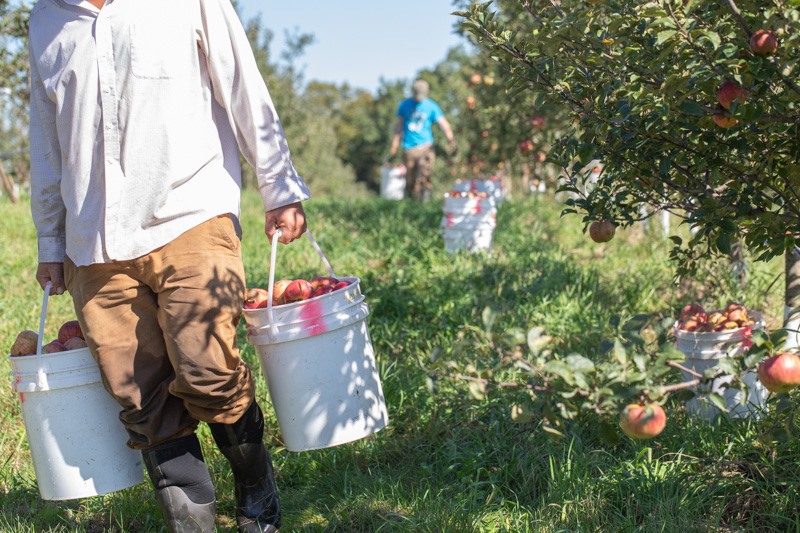
Find the perfect cider apple Was No Easy Feat
Yet, there was a problem. After the Birminghams had done some research into buying those specific kinds of apple trees, they realized the trees were not commercially available in the United States. Despite this added challenge, Birmingham didn’t let it deter her dreams of farming an apple cider orchard. “I took a class on grafting and the person who taught us had a small orchard with some of these tannic varieties.”
After doing more research, Birmingham learned that the USDA Department of Agriculture has an apple germplasm repository — which is basically a small orchard — in Geneva, New York, where she could order blood wood varieties for grafting. They just so happened to have cider varieties in their collection.
In more recent years, she has managed to find other orchards where she could acquire these varieties in order to ramp up her own orchard. “In 2011, hard cider became the fastest-growing adult beverage category in the history of the United States. So with that, there were a couple of nurseries that would make custom graphs varieties for you. Not every variety of course, but those they had access to.” Today, Birmingham has around 16,000 trees planted on her farm. “We still have over 1,000 in our tree nursery that have been grafted or will be grafted,” she adds.
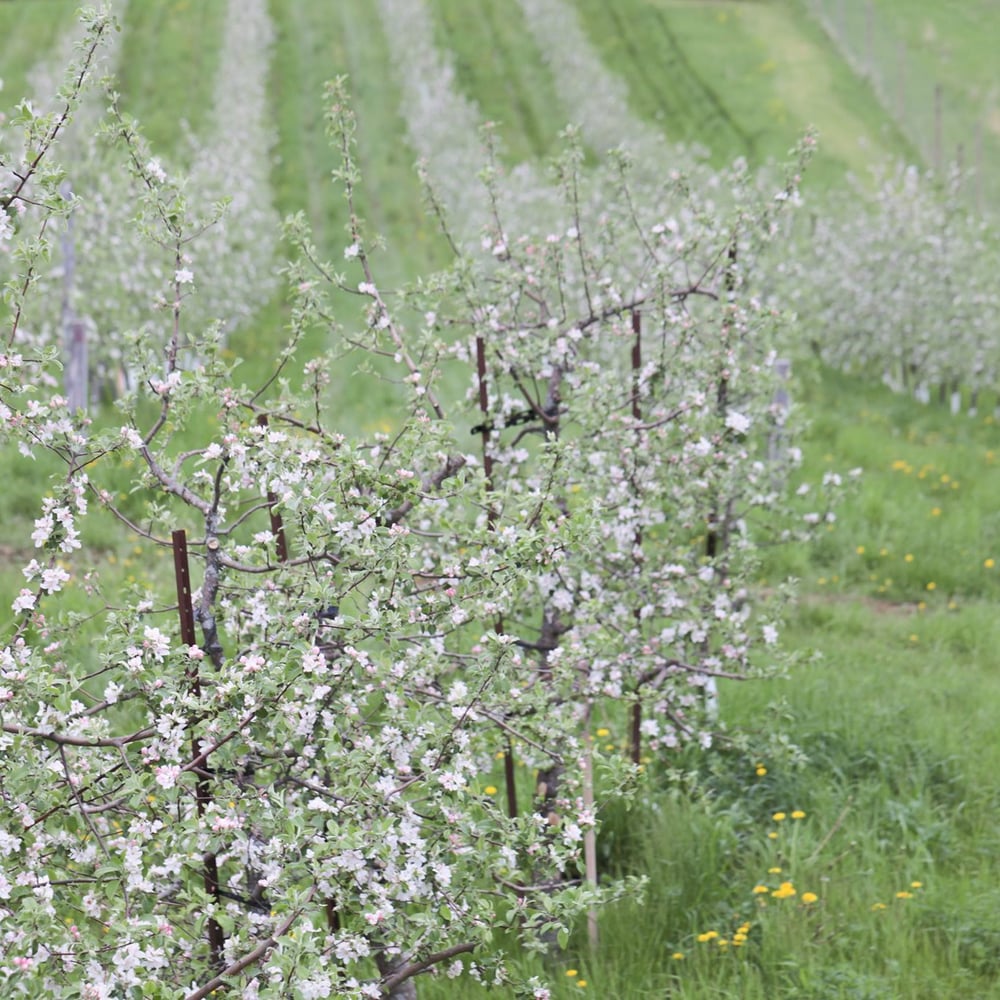
The Cider Farm
Growing an organic apple orchard with English and French varieties certainly has its challenges, but for Birmingham it was a labor of love. For instance, the trees are more prone to diseases and pest issues that are not as common as where they originated. Through some trial and error, Birmingham was able to figure out which varieties worked well on her farm and which did not. "I'm a datapoint of one, but at the time I started I didn’t know of anyone else in the US growing these organically. It’s an unusual apple, grown organically, and then in Midwest conditions,” she explained. “I've had to cut down and burn some trees that have contracted this potentially lethal disease before they give it to other trees. It's been very challenging and costly but we're very dedicated.”
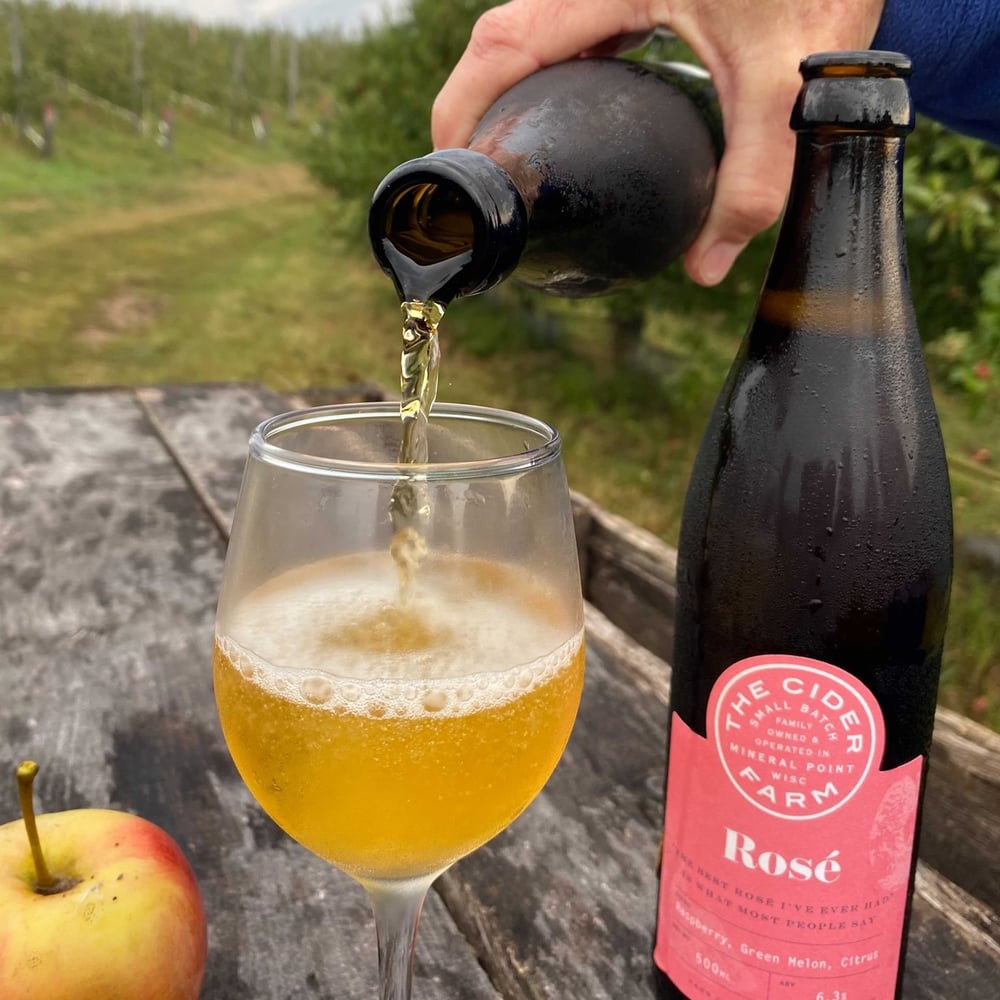
While it would be easy to simply buy apple juice concentrate from the marketplace and use that as the base for cider, Birmingham finds this approach flawed. “Apple juice concentrate is basically boiled down apple juice, so you’ve boiled off the aromas and flavors. I mean, could you imagine a wine being made out of grape juice concentrate? Juice just doesn’t have much to offer” she said.
So, what makes an Exceptional cider apple?
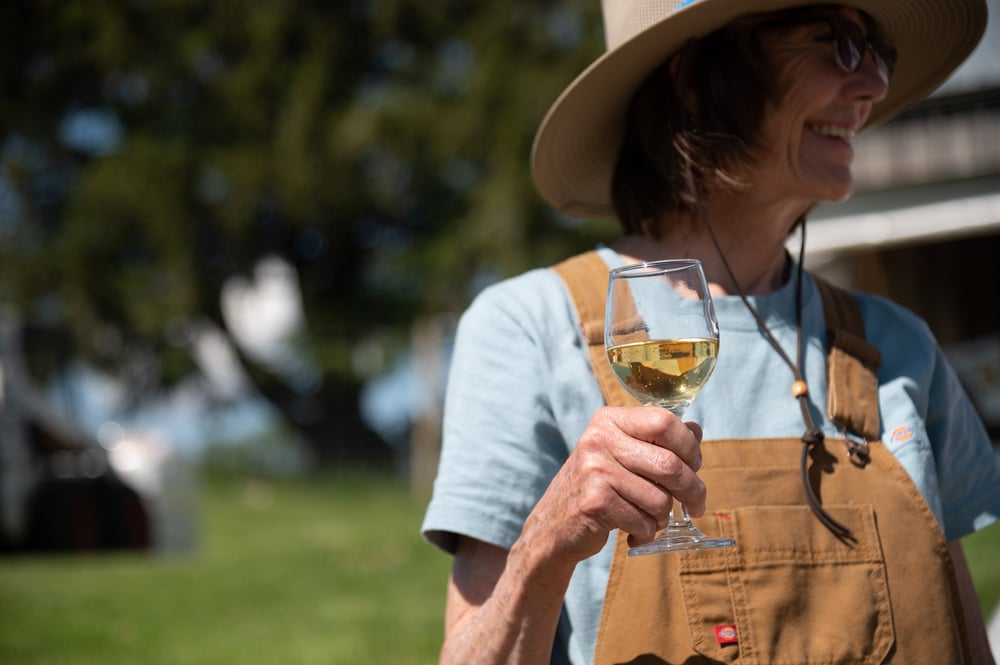
It’s all in the tannins, which produce a dry sensation and mouthfeel. “At Cider Farm, we’re featuring the apple. For instance, for our Classic Dry Cider, we use five of these tannic varieties and a tart apple base. We just wanted to make a classically good dry cider. We felt that if we're going to do it, we're going to do it right. We wanted a high-quality product"
"All in all, we're glad we chose the route that has not been easy.”
To learn more about the Cider Farm, including tasting room hours, purchasing cider or brandy online, and how to join the Cider club (yes! they ship all across the country), visit them at: theciderfarm.com


